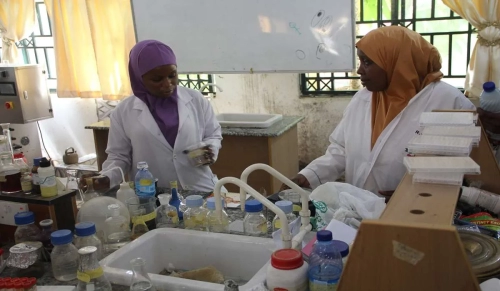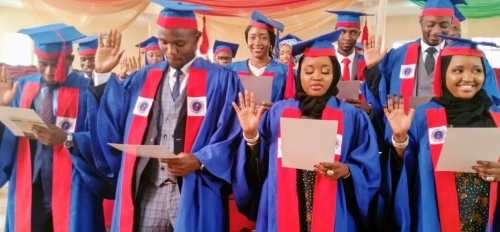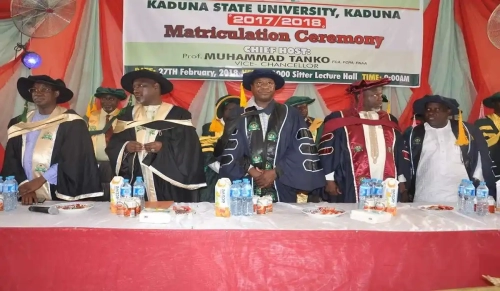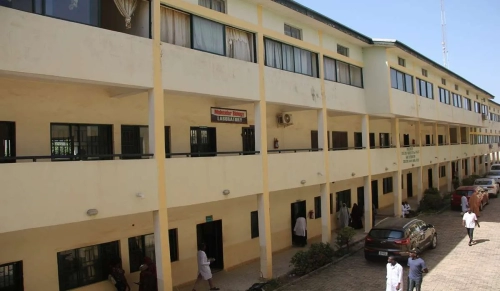About
Kaduna State University (KASU), established in 2004, is a premier institution focused on providing quality education, research, and community service. Located in the heart of Kaduna State, KASU serves a diverse population of students from various backgrounds, fostering an inclusive and vibrant academic community. Our university offers a wide range of undergraduate and postgraduate programs across various disciplines, including arts, sciences, social sciences, health sciences, and engineering. With a focus on practical learning and innovative research, we strive to nurture critical thinkers and problem solvers who can contribute meaningfully to society.
| Acronym |
KASU |
| Nickname |
KASU |
| Motto / Slogan |
Knowledge for Development and Unity |
| Colour |
Green, White, Red |
| Founded |
2004 |
| Location |
Kaduna North, Kaduna, Nigeria |
| Address |
GF82+M6R, Tafawa Balewa Way, Kabala Coastain, Kaduna 800283, Kaduna |
Mission
Kaduna State University's mission is to provide a high-quality, all-round university education for the development of individuals and the state, while fostering values of love, tolerance, and unity.
Vision
Kaduna State University's (KASU) vision is to achieve world-class excellence in Applied Sciences and Sustainability studies, focusing on innovative teaching and cutting-edge research.
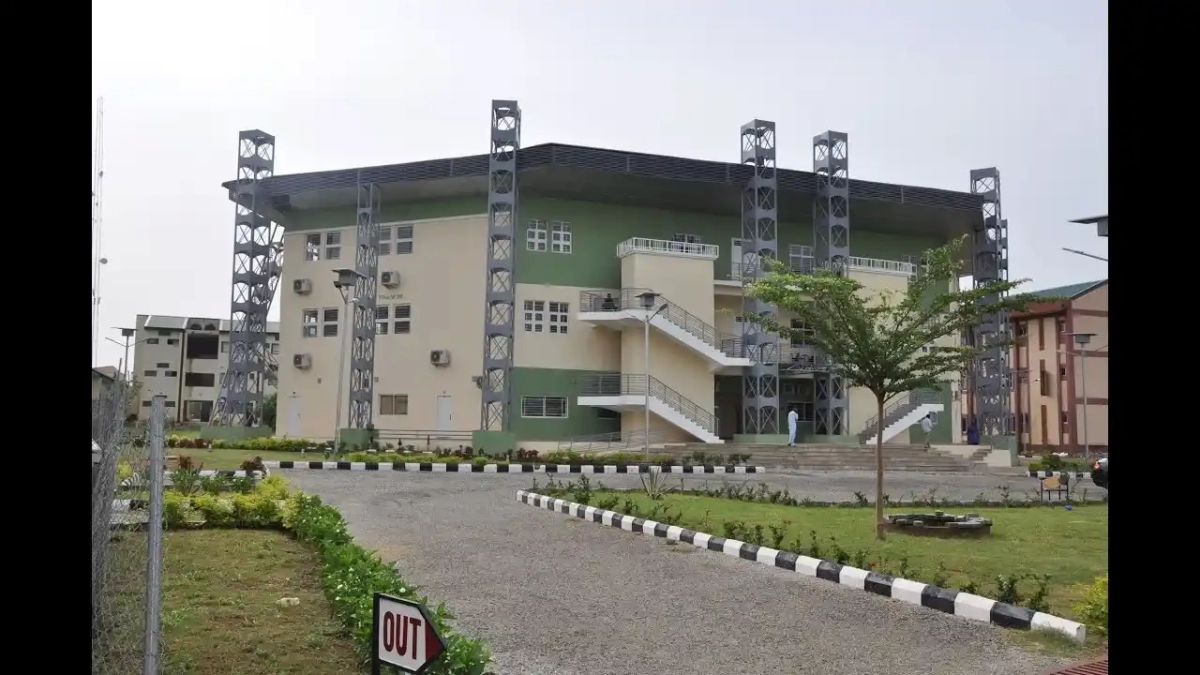
Objectives
Kaduna State University (KASU) aims to provide a high-quality, all-round university education, fostering individual and state development.
Admission
Admission Rate (70%)
0%
70%
100%
Undergraduate Admission Requirement
General Requirements
- All candidates must possess at least five (5) credit passes at O-Levels, including Mathematics and English Language, at not more than 2 sittings. Candidates are also to note that there are other requirements that may be specific to a Faculty and/or a Programme.
- KASU conducts a POST-UTME screening exercise for both UTME and Direct Entry candidates.
- All candidates must complete the online Application Form of the University on this portal. No admission into the University's Postgraduate and/or Remedial Programmes is valid without duly applying through this portal.
- In all cases, Kaduna State University Management is under no obligation to enter into correspondence on its decision with any candidate.
- All admissions are provsional, and Candidates offered such provisional admissions shall be required to present originals of their credentials at the point of registration.
Basic Studies Programmes
- Candidates for this programme must possess not less than five (5) O-Level credits which must include English Language and Mathematics.
- The other three credits for the SCIENCE programme should be in the following subjects: Physics, Chemistry, Biology and/or Geography.
- For the HUMANITIES programme, the other three credits should be in Economics, Government/History, Literature in English, Biology, and/or Geography.
- The five credits above must be obtained in not more than two (2) sittings.
- Candidates must register for this year's Unified Tertiary Matriculation Examinations (UTME) with relevant subject combinations and must obtain the minimum pass mark approved by the Federal Government.
Remedial Studies Programmes
- Candidates for the SCIENCE Remedial Programme must possess a minimum of three (3) O-Level credits in not more than 1 sitting in the following subjects: English Language, Mathematics, Biology, Chemistry, Physics and Geography.
- Candidates for the HUMANITIES Remedial Programme must possess a minimum of three (3) O-Level credits in not more than 1 sitting in the following subjects: English Language, Mathematics, Economics, Government/History, Literature in English, Biology and Geography.
- Candidates admitted for the Remedial Studies Programme are expected to register and pass the SSCE or NECO in the subjects they are deficient in.
- Candidates will not be allowed to register for subjects that have not been attempted at O-Levels.
Supporting Documents
- Jamb result slip
- Coloured Jamb admission letter
- O-Level results (and A-Level for Direct Entry)
- Primary School Leaving Certificate
- Indigene/Local Government Certificate
- Birth Certificate
- Post UTME registration slip
- Scratch cards for SSCE/O-Level results.
Postgraduate Admission Requirments
Postgraduate Diploma (PGD) Programmes
- All candidates must possess at least five (5) credit passes at O-Levels, including Mathematics and English Language, at not more than 2 sittings. Candidates are also to note that there are other requirements that may be specific to a Faculty and/or a Programme.
- For postgraduate diplomas (PGD), candidates must have a relevant Bachelor degree from a recognized university not lower than Third Class; or
- Bachelor degree with at least Second Class Lower Division in area not related to the field applying for may be considered.
- Higher National Diploma (HND) with a minimum of merit in related field of study from a Polytechnic or any recognized Institution can apply.
Academic Masters Degree (MSc) Programmes
- All candidates must possess at least five (5) credit passes at O-Levels, including Mathematics and English Language, at not more than 2 sittings. Candidates are also to note that there are other requirements that may be specific to a Faculty and/or a Programme.
- Possesion of a first degree of Kaduna State University or any recognized University in the relevant field with minimum of Second Class Lower (2.2).
- A Candidate with a Postgraduate Diploma with a CGPA of not less than 3.50.
Professional Masters Degree Programmes
- All candidates must possess at least five (5) credit passes at O-Levels, including Mathematics and English Language, at not more than 2 sittings. Candidates are also to note that there are other requirements that may be specific to a Faculty and/or a Programme.
- Possesion of a first degree of Kaduna State University or any recognized University in the relevant field with minimum of Second Class Honours may be considered.
- A candidate with a Third Class Degree or HND and a Postgraduate Diploma from Kaduna State University or any recognized institution with a CGPA of not less than 3.50.
Doctor of Philosophy Programmes
- All candidates must possess at least five (5) credit passes at O-Levels, including Mathematics and English Language, at not more than 2 sittings. Candidates are also to note that there are other requirements that may be specific to a Faculty and/or a Programme.
- Possesion of a first degree of Kaduna State University or any recognized University in the relevant field with minimum of Second Class Honours may be considered.
- Masters Degree of Kaduna State University or any recognized university in the proposed field of study with minimum CGPA of 3.50. Click here to register
Supporting Documents
- Application Form
- Academic Transcripts
- O Level
- Letter of References
- Proof of Professional Experience
How To Apply For Admission
Step 1: Acceptance of Admission Offer on JAMB CAPS
- Log in to the JAMB CAPS portal (https://efacility.jamb.gov.ng).
- Accept your admission offer by clicking "Accept Admission." If you face any issues accessing JAMB CAPS, visit any nearest JAMB-accredited CBT centre for assistance.
- Skip the above steps if you have already accepted the admission offer.
- Download your JAMB Admission Letter and Updated JAMB Result Slip, as these are required for the next steps. (charges for admission letter downloads are paid to JAMB via Remita).
Step 2: O-Level Results Verification
Step 3: Upload of Documents on KASU SAFApply Portal
- Visit the KASU SafApply portal @ (https://applicant.safapply.com/kasu).
- Log in using your login credentials.
- Upload the following documents for verification: JAMB Admission Letter., Updated JAMB Result Slip.
Note: A Conditional Offer will be sent to your email if your documents are complete and accurate. If there are missing or incorrect documents, you will receive an SMS or email with instructions on how to update your profile. Kindly respond promptly to all queries.
Step 4: Payment of Acceptance Fee and Download of KASU Admission Offer.
- Click the payment link in the Conditional Offer email to access the payment gateway.
- Pay the Acceptance Fee only through the platform provided.
- After payment, you will receive a confirmation email with your KASU Admission Letter. Alternatively, you can log into SAFApply and download it under the “Offer Letter” tab.
Step 5: School Fee Payment
- Log in to the KASU Portal (https://kasu.safrecords.com) using:
- Username: JAMB Registration Number.
- Password: kasu2025 (change this immediately after logging in).
- Navigate to the "Fees" section to view the fee schedule and make payment.
- Payment methods include: Online payment via the portal.
- Payment at designated bank branches (Download your invoice from the portal and proceed to make payment at your bank of convenience using the Remita-generated code.)
- Once payment is completed, proceed to register for your courses.
Step 6: Course Registration
- Log in to the portal and navigate to the "Courses" section.
- Register for your first and second-semester courses.
Step 7: Collection of New Students' Kit
- ID Card: Proceed to the Security Office to collect your ID card.
- GST Books: Visit the GST Unit to collect your books.
Admission Contacts
Email: [email protected]
Phone : +234-8033496226
Apply For Admission
Vice Chancellor
Professor Abdullahi Ibrahim Musa, the Vice Chancellor of Kaduna State University (KASU), is dedicated to transforming KASU into a world-class institution with a focus on applied sciences and sustainability. With a Ph.D. in Library Science from Emporia University, Kansas, and an MBA from Bayero University, Kano, Professor Musa brings a wealth of academic and administrative experience. Before becomi
... read moreng Vice Chancellor, he served as the university librarian
History
Established in 2004, KASU has rapidly evolved into a center of academic excellence, committed to providing a transformative educational experience that equips students with the skills and knowledge necessary to thrive in a dynamic global environment. At KASU, we believe that education extends beyond the classroom. Our commitment to holistic development encourages students to engage in extracurricular activities, community service, and leadership opportunities. This approach not only enriches their academic experience but also prepares them to become responsible citizens and leaders in their fields.

